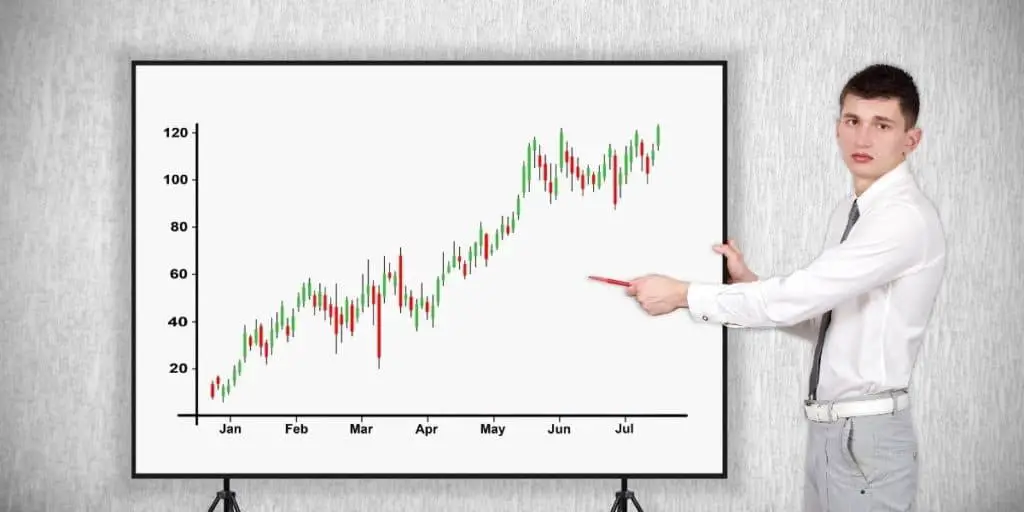No matter if you’re an experienced or a beginner forex trader, you have heard of forex signals. They’re all over the internet, promising all kinds of profits and advantages. But it’s not easy to make sure if forex signals work.
Forex signals work, but only if you find a reliable signal provider in line with your trading style. These signals show you how to execute trades, saving you time and effort analyzing the market. But try not to fall into scammers’ trap, and learn from signals rather than completely relying on them.
In this article, we’ll go through what forex signals are, their advantages and disadvantages, and automated and manual signals. We’ll also explain how traders can make the most out of forex signals.
IMPORTANT SIDENOTE: I surveyed 1500+ traders to understand how social trading impacted their trading outcomes. The results shocked my belief system! Read my latest article: ‘Exploring Social Trading: Community, Profit, and Collaboration’ for my in-depth findings through the data collected from this survey!
Table of Contents
What Are Forex Signals?
There’s more to executing a forex trade than you may think. It’s not merely about choosing two currency pairs, placing a position on a pair, and buying or selling currencies. Both experienced, and novice traders equally need to decide on currency pairs to invest in, the optimal investment capital, action price, risks, entry and exit price, and many more.

No matter how experienced a trader is, they could always use expert recommendations. That’s what forex signals are about. They’re a set of suggestions and information that could even tell the trader when to enter or exit a trade.
To help the traders decide more quickly, signal providers keep signal messages short. They typically include advice on whether to buy or sell (direction of the order), the currency pair, and the price. They could also give you signals on what order types you need to set, such as a stop-loss order, a market order, or a pending (limit) order.
Automated and Manual Signals
Through manual signal development, a trader monitors trades, looks for signals, and interprets them to make decisions. On the other hand, signal providers combine their market experience with in-depth technical and fundamental analyses to create signals.
The best thing about manual signals is that they’re not merely dependent on numbers and charts. Traders use their intuition to see what feels right. They also rely on how sociology and psychology drive the forex market. Human traders can assess world events and political issues that have huge implications on the market.
However, human psychology can be biased and emotional. So, it can trip the trader’s choices, and therefore mislead you in the market. Plus, it raises the fraud risks since scammers can easily deceive the trader and take advantage of their vulnerabilities.
On the other hand, automated signals involve using specific software that looks for the right signals. The software algorithms rely on technical analysis to track market events and create signals.
Unlike manual signals, this automated system can monitor the market 24/7 to access and process more information. Plus, since the human factor is absent, there’s no emotional decision-making. It’s faster and gives real-time information about the market.
However, technical problems like viruses can easily cause breakdowns and affect the system. And in the absence of human factors, fundamental and market sentiment analysis is not an option.
Forex signals work, but it depends on how you use signals and what you expect from them. Like any tool you use in forex trading, signals have pros and cons that could make them worthwhile or a waste of money. Here are some:
Pros of Forex Signals
Described below are the primary advantages of trading with forex signals:
- A great learning tool: Forex signals can shorten the forex trading learning curve because they allow you to understand the market deeply. By analyzing every signal and the reasoning behind it, you can determine which factors move the market in your desired position.
- Improve risk management skills: If you use a reliable source, you can make the best decisions based on real-time analyses and market information, thereby minimizing potential risks. The signals provided by experts can also help beginners take more calculated risks.
- Time and effort saving: Being a successful trader requires lots of time to monitor market developments, a challenging job for part-time traders. But using signals can save you the time and energy to stay on top of news and opportunities. All you need is to take the signals and enter or exit the trade accordingly.
Cons of Forex Signals
Described below are the primary disadvantages of trading with forex signals:
- Unreliability: There’s a plethora of free and paid signal-providing services online. While it can create countless opportunities for traders, it’s more challenging to verify their reliability. Plus, reputable forex experts don’t share their expertise for free. So, their services may not be affordable for beginners with limited budgets.
- Widespread scams: Not only do some services offer unreliable weak signals, but many of them could be scammers. You can’t be sure who’s behind the system claiming to be a seasoned expert. That’s one of the most important downsides of using signals and pre-signal pricing is a standard measure among signal providers. Scammers could take advantage of that by getting money and giving no signals.
- Inaccurate results: Especially with automated signals, traders always risk getting inaccurate results. As mentioned earlier, analyzing software is subject to errors and vulnerabilities like viruses, which can adversely influence the final results. Plus, your receiving signals should agree with your needs and requirements. But the software may produce signals that you can’t use despite paying large amounts of money.
Are Forex Signals Profitable?
So far, you know that forex signals can be a blessing and a curse simultaneously. But if used wisely, it helps you pick the right currency pairs, decide on the best selling/buying prices, and enter/exit a trade at the proper time.
In general, forex signals can be profitable if:
You Are Realistic
Forex signals can’t do magic even if you rely on the best experts. You won’t get your desired results unless the signals match your trading strategy. So, don’t blindly follow them, especially after you’ve gained experience in analyzing the market. You could tweak the signals to increase your profit-making chances. For example, extend the stop-loss order above what the signal has provided, or choose a better entry if you feel it’s not right for you.
You Choose a Reliable Signal Provider
Do your homework before you decide to follow a signal provider. Research all potential options and go through their advantages and disadvantages.
Some signal providers work with certain brokers and make you register with them. This way, they’ll get commissions on every trade you execute on their platform. Find those with positive and reliable track records. Pay attention to what they promise. Even a newbie would know that getting a 100% profit isn’t practical on a currency market.
Plus, consider your budget when it comes to their subscription fees. You don’t want to offset your earnings with extravagant commissions. But if you find a knowledgeable signal provider through due diligence, stick with them because they’re a rare commodity to find!
You Keep On Learning
And finally, don’t let signals prevent you from learning about the market. You don’t want to rely on others for your entire trading career. Use signals as a learning tool or a complementary strategy to make more informed decisions.

Author’s Recommendations: Top Trading and Investment Resources To Consider
Before concluding this article, I wanted to share few trading and investment resources that I have vetted, with the help of 50+ consistently profitable traders, for you. I am confident that you will greatly benefit in your trading journey by considering one or more of these resources.
- Roadmap to Becoming a Consistently Profitable Trader: I surveyed 5000+ traders (and interviewed 50+ profitable traders) to create the best possible step by step trading guide for you. Read my article: ‘7 Proven Steps To Profitable Trading’ to learn about my findings from surveying 5000+ traders, and to learn how these learnings can be leveraged to your advantage.
- Best Broker For Trading Success: I reviewed 15+ brokers and discussed my findings with 50+ consistently profitable traders. Post all that assessment, the best all round broker that our collective minds picked was M1 Finance. If you are looking to open a brokerage account, choose M1 Finance. You just cannot go wrong with it! Click Here To Sign Up for M1 Finance Today!
- Best Trading Courses You Can Take For Free (or at extremely low cost): I reviewed 30+ trading courses to recommend you the best resource, and found Trading Strategies in Emerging Markets Specialization on Coursera to beat every other course on the market. Plus, if you complete this course within 7 days, it will cost you nothing and will be absolutely free! Click Here To Sign Up Today! (If you don’t find this course valuable, you can cancel anytime within the 7 days trial period and pay nothing.)
- Best Passive Investment Platform For Exponential (Potentially) Returns: By enabling passive investments into a Bitcoin ETF, Acorns gives you the best opportunity to make exponential returns on your passive investments. Plus, Acorns is currently offering a $15 bonus for simply singing up to their platform – so that is one opportunity you don’t want to miss! (assuming you are interested in this platform). Click Here To Get $15 Bonus By Signing Up For Acorns Today! (It will take you less than 5 mins to sign up, and it is totally worth it.)
Conclusion
Forex signals can help traders decide which currencies to choose, when to enter and exit a trade, and what prices to set. They can be profitable if traders choose a reliable and knowledgeable signal provider who knows the market and provides strong suggestions.
However, don’t let forex signals keep you from learning and independent analyses. You can always make more profits by enhancing your knowledge.
BEFORE YOU GO: Don’t forget to check out my latest article – ‘Exploring Social Trading: Community, Profit, and Collaboration’. I surveyed 1500+ traders to identify the impact social trading can have on your trading performance, and shared all my findings in this article. No matter where you are in your trading journey today, I am confident that you will find this article helpful!
Affiliate Disclosure: We participate in several affiliate programs and may be compensated if you make a purchase using our referral link, at no additional cost to you. You can, however, trust the integrity of our recommendation. Affiliate programs exist even for products that we are not recommending. We only choose to recommend you the products that we actually believe in.
Recent Posts
Exploring Social Trading: Community, Profit, and Collaboration
Have you ever wondered about the potential of social trading? Well, that curiosity led me on a fascinating journey of surveying over 1500 traders. The aim? To understand if being part of a trading...
Ah, wine investment! A tantalizing topic that piques the curiosity of many. A complex, yet alluring world where passions and profits intertwine. But, is it a good idea? In this article, we'll uncork...
